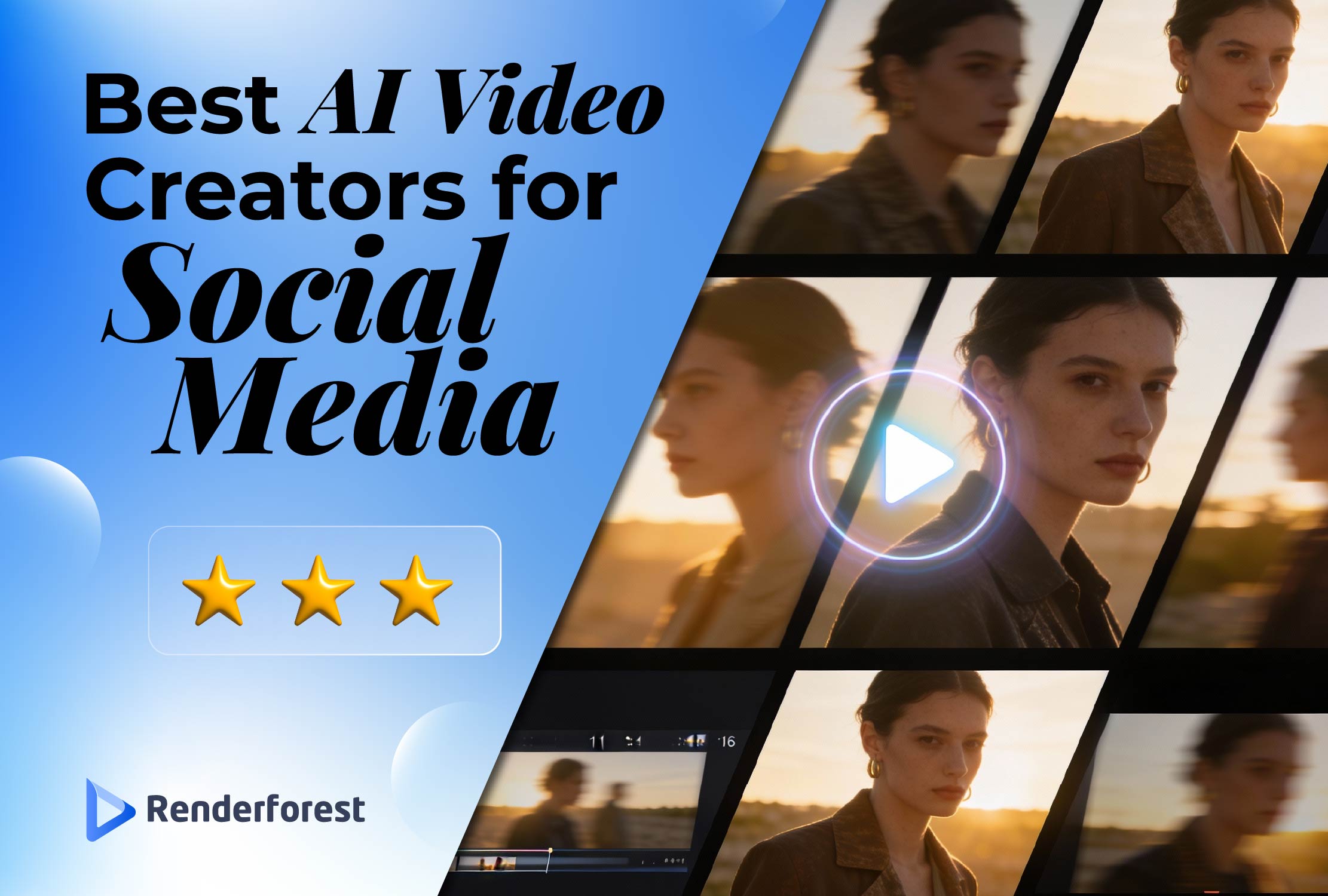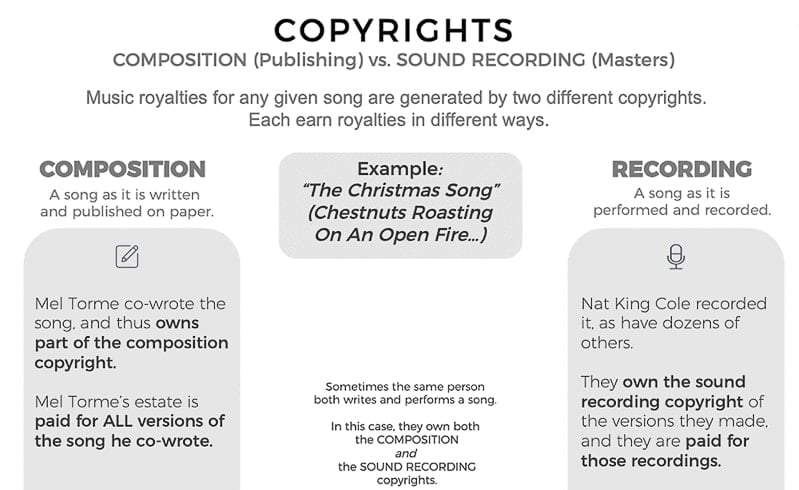
AI
Have you ever come across a piece of music that was just perfect for your video project only to find out the song was copyrighted? If so, you have certainly wondered how to get permission to use a song without violating the artist’s rights.
It’s no news that one of the most influential components of a video is sound. Music is responsible for more than half of the impact made by videos.
Not every video creator is willing to go through negotiations with a record label in order to get permission to use just one song. If this is your case, then you can opt for royalty-free music. But if you want to use a song owned by a record label, you must get ready to consult with the copyright holder.
Now, how do you use someone’s copyrighted art in a video without getting slammed by YouTube copyright strikes?”
The prospects of getting a music copyright strike don’t sound great, right? In this article, you will find all the necessary information regarding how to get permission to use a song in your video.
Let’s dive right in:
Whether you need permission to use a song or not depends on what you want to use it for. There are a few questions you’ve got to ask yourself. Where am I going to publish my work? Is it for my personal use or is it meant to be published on social media?
If you’re not planning to make your video public, or in other words, you’ll show it to your friends and family members only, don’t worry about getting permission to use a song.
The rationale behind this is pretty simple: if you’re not publicizing it, you aren’t aiming to profit from it. So, just do it!
The good news is that not all songs require permission to use. Some works are not protected by property laws but are sectioned under the public domain. Here is a list of songs in the public domain for you.
Copyright protection is not valid once a period of 50-70 years since the author’s death has passed. This number differs depending on the country. Consider, for example, all the works in the United States dating back to 1925.
They are under the public domain because the copyright protection for these songs expired in 2021. If you want to use music that’s in this domain, you can do so without worrying about permission.
Are you a YouTuber monetizing your brilliant ideas? Or are you an aspiring filmmaker with a Vimeo channel? It doesn’t matter – once you decide to use a song in a video that will be published on YouTube or other social media, you’ll have to get permission to use it lawfully. Otherwise, you will get copyright infringement.
Have you posted a video with a song that has no permission from the copyright owner? We’re here to tell you that you might end up with a lot of trouble.
If you’re lucky enough, the copyright owner – upon spotting unauthorized use of their song – might simply ask you to remove their work from your video.
If your video is on YouTube, you can get a copyright strike. This happens when the owner files an infringement complaint. In this case, YouTube will investigate the claim and take down your video if there is a copyright violation.
YoutTube also uses the so-called Content ID. It is able to recognize that the song has been used before. YouTube will mute the sound of your video and ask you to submit proofs that you have permission to use the song. If you fail to do so your video will be taken down.

The worst-case scenario – and believe us: you don’t want this – is when the copyright owner files a legal case against you. So, to avoid potential legal costs, you shouldn’t use songs without permission.
All of this sounds pretty bad, right? Don’t worry – we got your back. Follow the steps below, and you will be able to get permission from the copyright holder.
Before learning how to ask for a license, you should define what type of license you need. The first thing to know is that every song has two main parts: the music composition and the sound recording.
The musical composition appears as a work of art and includes music and accompanying words. It exists in the form of notations, or phonorecords, such as cassette tape or CD.
Meanwhile, sound recording is a series of sounds, recordings, or music. Every recording has its code of identification (ISRC). You can use the ISRC to spot data, such as sales of a recording.
So, remember: you might need two different licenses for the two separate parts of the song:

Let’s have a look at an example to make things clearer.
The composition of Aretha Franklin’s “Respect,” for example, covers the music and lyrics, but the recording performance of her singing “Respect” isn’t included in the composition section. The composition is separate from the sound recording of the artist performing it. For composition copyright, you’ll need to contact the owner of the composition copyright.
When you want to make a cover and re-record someone’s work, it becomes your own master recording. So you no longer need a master license from the owner of the recording copyright. But you will still need a license from the publisher to use the composition and lyrics.
Now, we’re moving on to the types of licenses you might need.
For those of you who have figured out how and where you want to use the song, we’ve compiled a list of six types of music licenses. You’ll be able to choose the one that fits your needs best.
Let’s discuss the six types of music licenses.
Let’s assume you want to add music to your video, TV show, or film.
You’ll need to get the type of license that gives you the right to sync the music to your TV show, game, ad, or any other video you’re making. This is widely known as a synchronization license.
If you want to record yourself playing someone’s song or singing one of Adele’s songs, for example, you will certainly need a mechanical license. A mechanical license grants you permission to reinterpret or re-record a work.
Master license is often acquired along with a sync license. It gives permission to use the pre-recorded version but doesn’t give the right to re-record the music.
Performance license applies to all the cases when you want to play the music in stores, restaurants, or any other public space.
Are you going to submit your work (where the music appeared) to a movie theater? If yes, then you should get a theatrical license. Every time the copyrighted record is being performed on stage in front of an audience, a theatrical license is needed.
Print rights license gives you permission to rearrange, print, or share the music notes or lyrics of a song without abusing the artist’s rights.
Now that you’ve figured out which type of license will provide you with the rights you need, let’s look into ways of finding the copyright owner.
Explore
So, you know what song you’ll use and what type of licensing you’re going to need. But one of the most challenging things is still ahead of you. Yes, we are talking about finding the copyright owner of the song.
Below is a plan of action we’ve outlined specifically for you. Follow these steps to locate the copyright owner of the song you want to use.
If these websites don’t help you with the contract or the song you’ve chosen doesn’t exist in their music library, you’ll be required to pursue the negotiations independently.
The easiest way to find the copyright owner is by searching the song in a search engine.

For instance, here we’ve searched for Red Hot Chilli Pepper’s hit Under the Bridge. When we clicked “see more” in the lyrics section, the copyright information appeared.
But what if no useful info is available when you do this?
Well, there are a number of things you can try out:
Performing rights societies. The thing is: most of the music publishers and professional songwriters belong to one performing rights society or another. The three major ones are
If you search for a song on, say, ASCAP and your search result yields nothing, the chance is the song is on BMI or SESAC. It should come off as no surprise as all the major songwriters and publishers usually belong to one of the three organizations. The keyword here is one — they are not allowed to be a member of more than one of these organizations.
Music licensing companies. If the song you chose was not listed on ASCAP, BMI, or SESAC, you should resort to music licensing companies. They might have the artist whose song you want to use. Some of the most popular ones are
Miscellaneous. If you were still unable to find the info you need, you could try ISWC Network which contains quite a lot of information about copyright owners. You can also visit the U.S. Copyright Office.
So, you’ve figured out who is the copyright owner of the song you want to use. Now, it’s time to negotiate. So, let’s get into it!
Once you have successfully identified the copyright owner, it’s time for negotiations. You could write the owner an email. In your letter make sure to always say who you are, the song/music you wish to use, and how you’ll be using it.
More specifically, be prepared to communicate what rights you need. Clarity is important in negotiations. Since there are several types of licenses, you should be alert and watchful to ensure that you acquire the right kind of permission.
Consider the following points of agreement:
Depending on the intended use of the copyright-protected music, the copyright holder might choose to grant their permission for free. Usually, you are able to use the music for free if your video is non-for-profit or if you are expecting a very low number of views. In other words, it might be free if you’re not expected to benefit financially.
The final stage of negotiations is to turn the agreement into a written document. This will help you avoid all possible misunderstandings in the future.
Also, don’t forget that copyright owners don’t always respond to requests. If they refuse to give you permission, or you fail at tracking them down, it doesn’t mean you can use the music just because you tried. Unfortunately, you don’t get points for trying.
The cost to license a song will vary greatly from country to country and from artist to artist. If we are talking about licensing a song from an artist who is relatively unknown, the cost will range from $50 to $150. But if you want to license a song by a famous musician, then the price can be as high as tens of thousands of dollars. Some of these top artists might ask for a certain percentage of revenue you got through that license instead of a fixed fee.
For example, in 1999 AC/DC was reported to receive $500,000 (almost $800,000 in 2021) for the use of their groundbreaking “Thunderstruck” in the film “Varsity Blues”.
On a brighter note, if you can’t afford to pay the record label to obtain the rights you need, there are other options.

Consider one of the following alternatives:
Takeaways
Making the right choice of music in videos is essential. But if the song you plan on using is one that’s copyrighted, you’ll need permission from the record label or whatever party owns the copyright.
Be persistent in adding a musical component to your work without violating copyright laws. First and foremost, consider why you need that song and which license you should acquire. After successfully tracking down the copyright holder, be prepared to negotiate and get their permission.
Do you already have your music and are ready to start making your video? Discover hundreds of ready-made templates and audio visualizer options like the Spotify visualizer, sound wave generator, and audio waveform tool to help you create professional videos with ease!
Article by: Renderforest Staff
Dive into our Forestblog of exclusive interviews, handy tutorials and interesting articles published every week!
Read all posts by Renderforest Staff

